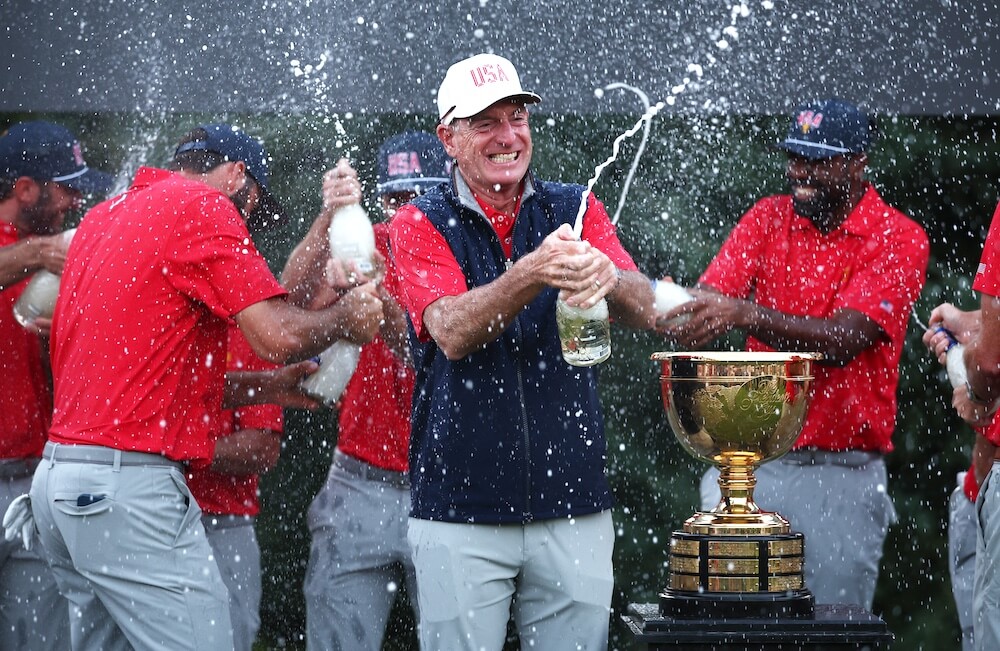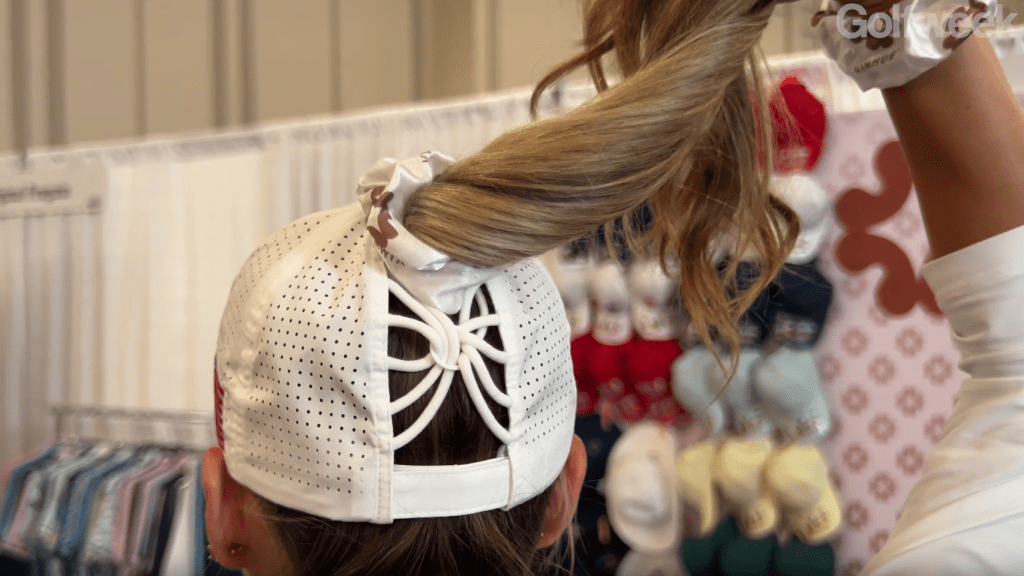[ad_1]

U.S. captain Jim Furyk and his team celebrate after winning the 2024 Presidents Cup. Before putting the Presidents Cup back in its box for another two years and fully turning the page to what may be the Ryder Cup of all Ryder Cups at Bethpage Black next fall, let’s take a last look at what transpired at Royal Montreal and what, if anything, it means going forward.
The result – an 18½-11½ American victory over the International team – looked more lopsided than it probably felt. In fact, the Americans won just one more hole (117-116) than the International team over the four days, but Jim Furyk’s squad excelled at closing out matches. It reconfirmed two things: The Americans are better and deeper than the International side, and there is no reason they shouldn’t be favored to win the Ryder Cup back when they meet the Europeans on Long Island next year.
Form is fickle, as every golfer knows, but were it not for Scottie Scheffler, Xander Schauffele would be borderline unbeatable. This year, Schauffele has grown into a different player, and it feels as if he’s settling in for a long run of sustained excellence. And, Schauffele has turned lighting a victory cigar into performance art.
A couple of years ago, Jordan Spieth and Justin Thomas were at the emotional core of the American teams, but that has changed. They will likely play their way back onto teams, but Scheffler and Schauffele are the big dogs now, and both lead in their understated ways. Throw in Collin Morikawa and Patrick Cantlay, and captain Keegan Bradley’s Bethpage team is already loaded at the top.
Captains’ roles tend to be overrated in team events because they are only as good as their players perform. When everyone is making putts, captains are brilliant. When nobody’s making putts – or when the Internationals’ Mike Weir makes the miscalculation of doubling down on his four pairings in both Saturday sessions last week – captains did something wrong.

Bradley was paying close attention to how Furyk put the pieces together last week, knowing he’s next in line in the Ryder Cup crucible. It feels as if this is an inflection point in the timeline of American team captains. Just as Fred Couples, Davis Love III and Steve Stricker have stepped away, Furyk got the victory that eluded him as Ryder Cup captain in 2018 in France, and now it’s time for Bradley, Stewart Cink, Brandt Snedeker and Webb Simpson to take their turns while tapping into the experience of their predecessors.
“We’ve got a year to go here, and these boys know how important the Ryder Cup is in a year. I think it’s arguably one of the most important Ryder Cups the United States has ever had. We’re going to go in there ready to play, and we’re going to go in there to win the Ryder Cup,” Bradley said. “I’m going to take a lot of lessons I learned from Jim, Tabitha [Furyk, his wife], all the vice captains and apply that to next year’s team.”
The Ryder Cup is a different animal than the Presidents Cup. It is fueled by a rare fire that manages to keep burning for the two years between the matches. No matter what the calendar might indicate, the Ryder Cup never seems far away. The Presidents Cup is trying to get there, and the Internationals deserve credit for creating a team atmosphere that hasn’t yet delivered a victory but has elevated the event.
The Presidents Cup still seems one day too long, though the matching 5-0 sweeps on Thursday and Friday dented that argument, at least temporarily. With South Koreans Tom Kim, Sungjae Im and Si Woo Kim, the International team may have found its emotional core group. They played to the Canadian crowds, and each showed a side of himself that they typically keep buttoned up in regular events.
Tom Kim can be a joy to watch and, given his youth, he may one day challenge Adam Scott’s number of Presidents Cup appearances. His call-out of unnamed American team members for allegedly cursing at him on Saturday was surprising given his theatrics at times during the week. When Kim apologized for his remarks after the matches ended on Sunday, it was his attempt to douse whatever brushfire he may have created. He’s what the Presidents Cup needs – a brilliant talent who embraces the moment and holds nothing back – and Kim seemed to know he may have overreacted.
The Presidents Cup needs a little salt at times and, while it felt like a small thing, Kim brought the shaker.
Ultimately, this Presidents Cup turned out like almost every other one. Thirty years on, it still feels like a work in progress, but it’s worth the effort. Even if it does feel like the calm before the Ryder Cup storm.
[ad_2]



